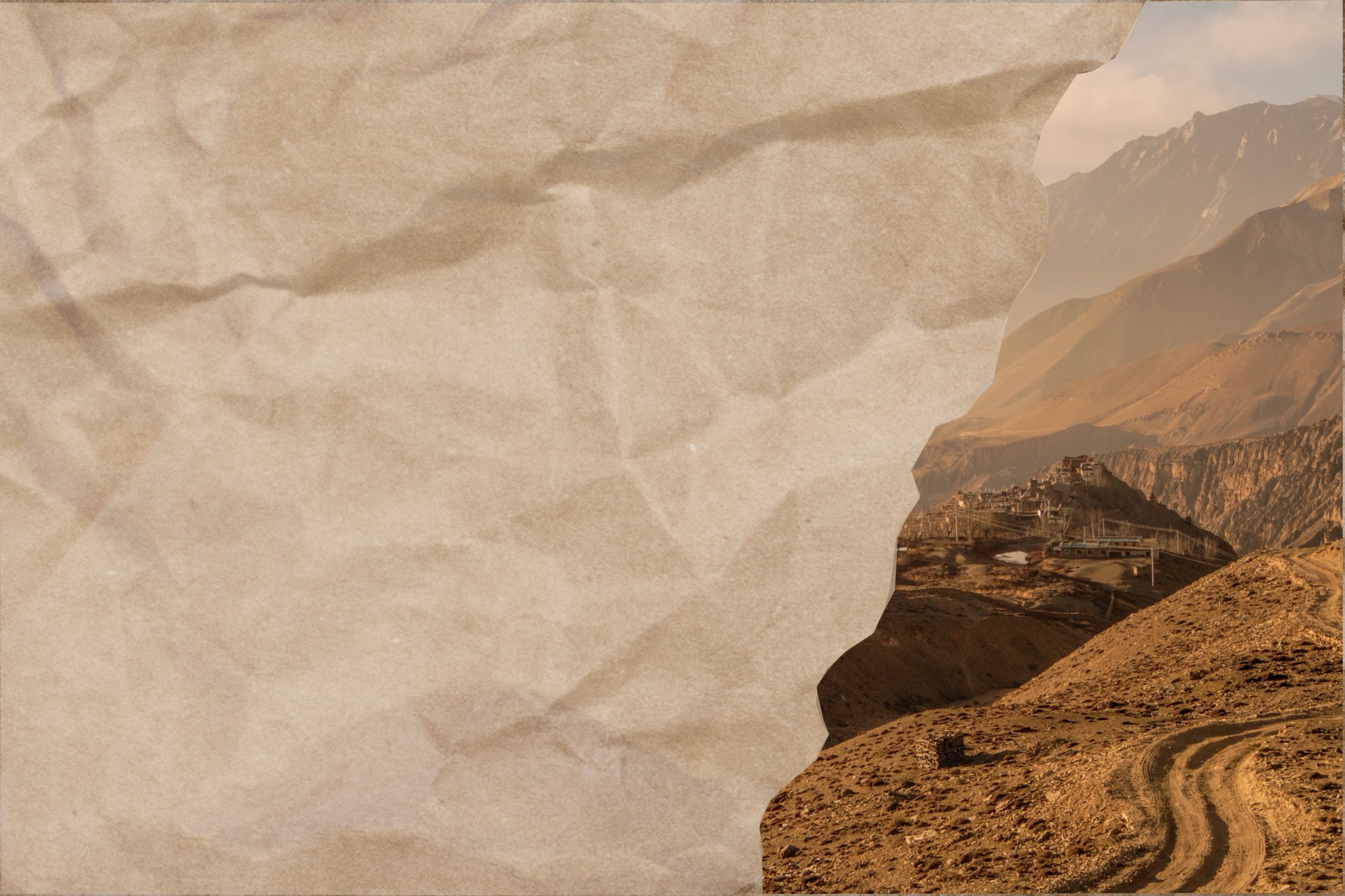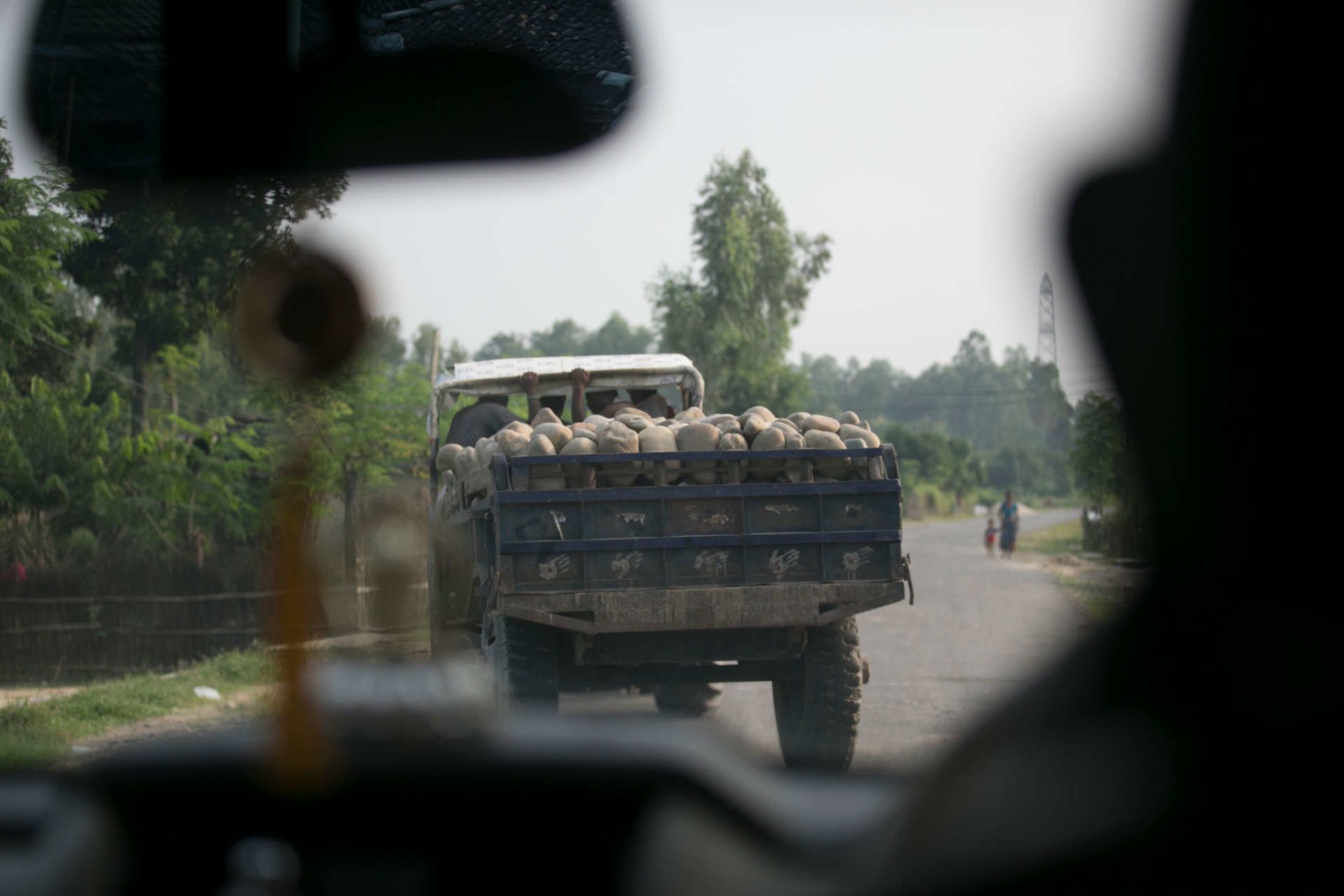Bhrikuti Rai
Bertha Challenge Fellow Bhrikuti Rai investigated how the dangerous and often illegal pursuit of profit has emboldened Nepalese businessmen and officials to pay scant regard to the protection of the foothills of the Himalayas.

Journalist and skilled podcaster Bhrikuti Rai, from the Centre of Investigative Journalism in Nepal (CIJ, Nepal), used her Bertha Challenge Fellowship year to drill down on a number of politicians and officials across Nepal, exposing an intricate political patronage system reaping extraordinary financial gains from extraction and construction companies.
Bhrikuti found that during the four months of national lockdown in 2020, most of the revenue sources in Nepal dried up except for money from sand and stone extraction, which continued to fill state coffers. As she wrote in her investigation “Permit to Plunder,” published online by CIJ, Nepal: “According to an official from the Jagati checkpoint in Bhaktapur [in Kathmandu Valley], over 600 tipper trucks carrying sand and pebbles from the nearby districts of Kavre and Sindhupalchok enter Kathmandu each day. The Intergovernmental Fiscal Management Act stipulates that local bodies are required to contribute 40 per cent of their revenue generated to the provinces. This incentivises the provinces to turn a blind eye to overexploitation or environmental degradation at the local level as they make most of their revenue from these very industries.”
In early 2021, the resulting increase in traffic, combined with smog from industry and wildfires, led to the highest levels of air pollution recorded in Kathmandu Valley. The government was forced to close schools, and Bhrikuti, together with over 3 million other residents, shut herself inside as the city was blanketed in a thick smog.

In the final month of Bhrikuti’s Fellowship, the government reversed key environmental protections, relaxing export bans on sand and gravel from the environmentally vulnerable Chure hills and riverbeds in the foothills of the Himalayas. Previous riverbed excavations in the area have been so extensive that their imprint on the landscape can be seen from space. The reversal of protections was slipped in with a budget announcement, after parliament had been dissolved and without any community consultation or parliamentary vote. It might have gone through silently if not for Bhrikuti, who immediately alerted contacts in the region. Bhrikuti’s reporting – along with several follow-up stories by the local press – on the removal of these key protections and on the underhanded way it was done by the government has sparked a civil society outcry that is still playing out in Nepal.
Speaking to Bhrikuti for an article on the significance of the policy U-turn, Bijay Kumar Singh, an environmentalist who has been working in the Chure region for decades, said that the reintroduction of exports “will cause unimaginable environmental degradation, leading to water shortages and habitat loss... No amount of money that the sale of these materials will bring will be able to compensate for that loss.”
Bhrikuti’s Fellowship findings are clear. As a local businessman she spoke to in the course of her research put it, “Precisely because so much of the government’s revenue comes from the wholesale plundering of the rivers ... authorities are reluctant to enforce any guidelines that might limit riverbed mining... The ultimate goal is just to collect revenue from the rivers, no matter what the environmental and social costs.”
“Like most locals from villages dotting the banks of the Indrawati in the Sindhupalchok district of central Nepal, Kamal Ratna Danuwar grew up with stories that revered the river... As a young boy, he was told that bringing back anything other than fish was a bad omen. ‘Not even a pebble,’ he remembers his elders berating him. They believed anything brought back from the river would bring home angry spirits, as the same river that fed them was also where they performed the last rites of their dead. So, young Danuwar, heeding the elders’ warning, brought home nothing but the fish he caught... When Danuwar was elected to the office [of local ward chair] in 2017, there was only one sand and pebble mining firm. Today, Sindhupalchok district’s Indrawati rural municipality alone hosts nine such firms.” Extract from "Permit to plunder: How the environment is paying the price for Nepal local governments’ greed" published by CIJ Nepal, April 2021.
Want to find out more?
CREDITS
Header image: Arina Krasnikova from Pexels, Photo by dnes from Pexels
Photo 1: Sangam Mahato, sister of Dilip Mahato, who was crushed to death by a tipper truck while protesting illegal sand mining in the Chure hills. Sangam stands in front of the now closed Churiyamai Sand Processing Factory, where her brother was murdered. Photo: Bikram Rai
Photo 2: Trucks transporting stones excavated from rivers in the Chure Hills. Photo by Bikram Rai.
Photo 3: Sand excavation in the Chure hills. Photo: Bikram Rai
Authors: The Bertha Challenge team
Editorial Consultant: Karen Frances Eng
This story was originally published in the Bertha Climate book and some of the information in this story may have changed since it was first published.



 Built with Shorthand
Built with Shorthand